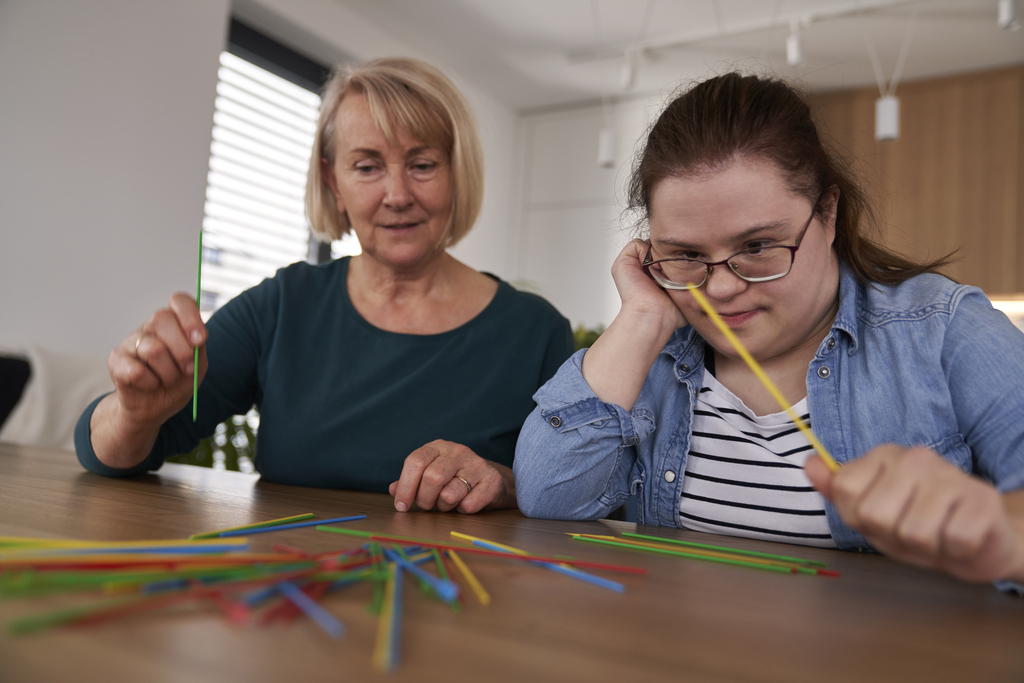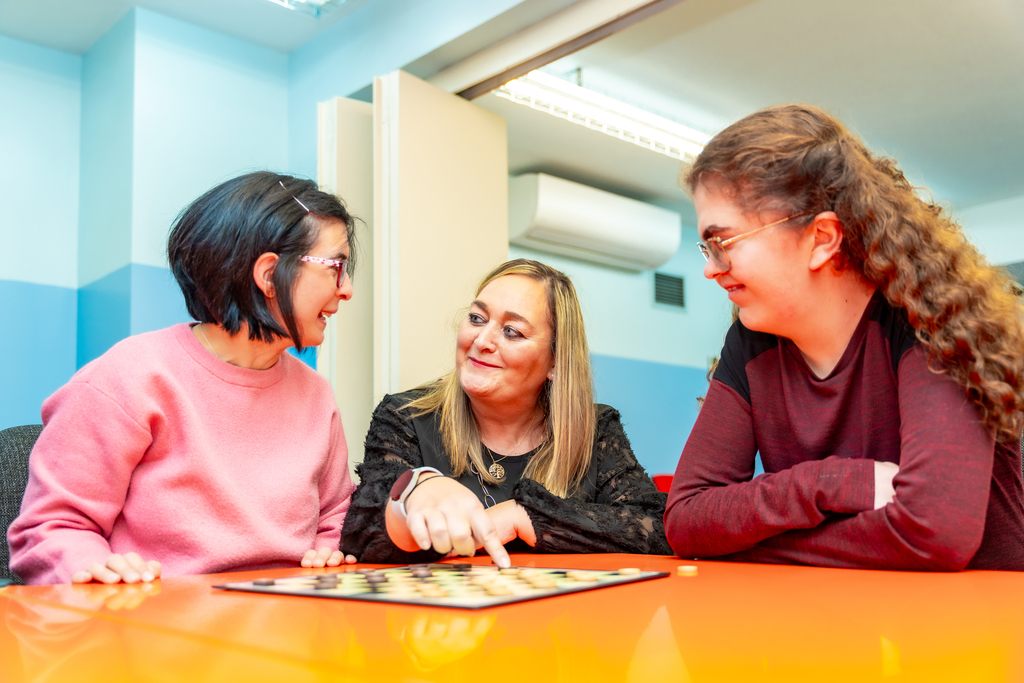Key Takeaways
- Around 10% of adults have learning disabilities, affecting reading, writing, and math skills.
- Identifying learning disabilities early enables tailored strategies and support, crucial for educational and professional success.
- Key indicators include challenges with reading, writing, following instructions, maintaining focus, and social interactions.
Learning Disabilities in Adults
Learning disabilities in adults are neurological conditions that affect the brain’s ability to receive, process, analyse, or store information. These conditions challenge learning skills such as reading and writing skills, mathematics, reasoning, and listening. There are cases where individuals experience a profound and multiple learning disability (PMLD), which is a severe learning disability and displays challenges related to vision, hearing, speech and mobility.
It’s important to distinguish that a learning disability does not result from intellectual disabilities, emotional disturbance, or environmental, cultural, or economic disadvantages.
The prevalence of learning disabilities in adults varies, but it’s estimated that about 10% of the population has some form of learning disability. Identifying and supporting adults with learning disabilities can be challenging as many may have developed coping strategies that mask their challenges or may not have experienced them in early childhood. Nonetheless, with the right support and accommodations, individuals with learning disabilities can achieve significant success in their personal and professional lives.
Importance of Recognising Signs Early
Recognising the early signs of learning disabilities is essential for providing the right support and intervention, particularly when it comes to learning disabilities in adults. Many adults experience daily challenges silently, unaware that their difficulties stem from common learning disabilities related to problem-solving, spoken language, and reading comprehension. Learning disabilities are often viewed as a learning difficulty. The most common and well-known learning difficulties are dyslexia, dyscalculia and dysgraphia. These challenges can significantly impact a person’s ability to read, write, handle mathematical concepts, maintain focus, organise thoughts and tasks, and navigate social interactions.
Early detection and support are key in reducing the potential setbacks in academic achievement, career progression, and personal development that can result from undiagnosed learning disabilities. It allows for the development of tailored learning strategies and accommodations, ensuring that individuals have the necessary tools to succeed in their educational endeavours, professional lives, and personal relationships.
Moreover, a family member’s involvement in recognising and addressing the signs of learning disabilities is crucial. Family members can provide valuable support and advocacy, ensuring their loved ones receive the necessary evaluations and interventions. This family support is instrumental in overcoming the challenges posed by the most common learning disabilities, enabling individuals to thrive despite these obstacles.

Common Signs of Learning Disabilities in Adults
Adults with learning disabilities may experience challenges with reading and writing, following instructions, maintaining focus and organisation, and engaging in social interactions.
These difficulties can impact various aspects of a person’s everyday life, requiring understanding and adequate support strategies. Identifying these common signs is crucial in providing the necessary assistance for an individual with a learning disability.
Challenges with Reading and Writing
Experiencing challenges with reading and writing can serve as significant indicators of a potential learning disability in adults. Reading difficulties, challenges with written language, and some learning difficulties, such as dyslexia, may follow for individuals living with a learning disability.
Clinicians must use assistive technology, such as text-to-speech tools, to provide high-quality support to people’s local communities. These tools can help overcome barriers related to reading and writing. It is recommended that those facing these challenges seek support resources specialised in dyslexia assessment and management.
Difficulties with Following Instructions
Facing challenges with following instructions can be a common indicator of learning disabilities in adults. Adults living with a learning disability may experience cognitive processing difficulties, making it hard for them to understand and carry out instructions effectively. These challenges can impact various aspects of their lives, including work tasks, academic assignments, and daily routines.
Adults with difficulty following instructions may require additional support and accommodations to help them navigate these obstacles. It’s essential for individuals facing such difficulties to seek proper evaluation and consider strategies or tools that can help them improve their ability to comprehend and execute instructions accurately in day-to-day life. By addressing these challenges, adults with learning disabilities can enhance their overall functioning and quality of life.
Challenges with Focus and Organisation
Experiencing challenges with focus and organisation commonly indicates adults experience learning disabilities. Difficulties in maintaining concentration and staying organised could be indicative of ADHD. Adults living with ADHD may find difficulty prioritising tasks, staying on track, and managing time effectively. Seeking the right support is crucial for managing these challenges.
Utilising tools such as organisational apps and planners and setting reminders can help improve focus and organisation skills. Additionally, creating structured routines and breaking tasks into smaller steps can help individuals with learning disabilities like ADHD navigate daily responsibilities more efficiently.
With the right support, adults facing these difficulties can develop strategies to enhance their focus and organisational abilities for better overall functioning.
Difficulty with Social Interaction
People living with learning disabilities often face challenges in social interaction, which can impact their ability to engage effectively in social contexts. This is the case for individuals with nonverbal learning disabilities (NVLD), where the person’s ability to understand social cues and communicate effectively is compromised. These mental health issues can lead to a deficiency in social skills, posing obstacles to establishing and sustaining relationships.
To reduce social interaction difficulties, people living with a learning disability must access support resources, such as engaging with speech therapists or participating in social skills groups. It is vital to recognise that a person’s intelligence is not limited by their learning differences. With appropriate and extra support, people living with a learning disability can develop their social skills, improving their mental health and ability to thrive in diverse social settings.
Impact of Learning Disabilities on Daily Life
A learning disability can pose significant challenges for adults in educational and career settings. These challenges may involve reading, writing, math, poor memory, and organisation difficulties, impacting daily tasks and productivity.
Additionally, learning disabilities can also have social and emotional implications, affecting relationships, self-esteem, and overall well-being.
Educational and Career Challenges
Educational and career pathways can be particularly challenging for adults with severe learning disabilities. These learning difficulties often translate into challenges with reading, writing, and organising information, which can profoundly affect a person’s ability to process information efficiently. This, in turn, can impact academic success and limit educational opportunities.
These challenges can lead to low self-esteem and uncertainty when making career choices, as an adult living with a learning disability might face difficulties in finding roles that accommodate their unique needs. Difficulties in focus, organisation, and social interaction can further hinder job performance and limit advancement opportunities. Accessing tailored support systems that address these specific learning and thinking differences is crucial for adults facing these challenges, enabling them to navigate their educational and career paths more effectively.
Social and Emotional Implications
Challenges with social interactions and emotional well-being can significantly impact the daily lives of adults with learning disabilities.
Understanding social cues and norms may lead to isolation and difficulty forming relationships. This can affect self-esteem and mental health, contributing to feelings of anxiety or depression.
Simple everyday tasks like making phone calls or attending social gatherings might feel overwhelming. Seeking support through therapy, counselling, or social skills training can help individuals navigate these challenges.
Building a strong support system of understanding friends, family members, or support groups is crucial.

Role of Healthcare Providers
Healthcare providers play a crucial role in supporting adults with learning disabilities. When adults exhibit signs of а learning disability, seeking guidance from a healthcare professional is essential for early intervention in adulthood.
These professionals can conduct assessments, review medical histories, and collaborate with specialists to identify specific learning challenges. Additionally, healthcare providers can connect adults with a learning disability to support resources such as educational programs, counselling services, and assistive technologies tailored to their needs.
Support Available for Adults with Learning Disabilities with Nurseline Community Services
At Nurseline Community Services, we offer comprehensive and personalised support for adults living with a learning disability, ensuring that every individual receives the care and support they need to thrive in their own homes and communities.
With an emphasis on creating a nurturing environment that promotes independence and personal growth, our support extends to various aspects of daily living, including personal care, household tasks, managing finances, socialisation, and achieving new skills.
At our core, we are committed to delivering care tailored to each person’s unique needs, employing a diverse range of services, from mental health support to addressing complex emotional needs and crisis management. What’s more, our services are designed to assist individuals with a wide array of conditions, including but not limited to epilepsy, brain injuries, physical and sensory impairments, and behaviours that challenge, providing a holistic approach to care that covers both physical and mental health needs.
Choosing Nurseline Community Services means selecting a partner dedicated to empowering individuals with a learning disability through supportive living environments, tailored person-centred care, and a comprehensive range of services aimed at enhancing the quality of life. With offices in Bristol, Birmingham, and Gloucester, we offer our expertise across the UK, providing 24/7 support to ensure that individuals can access the help they need when they need it.
Contact us today if you or a loved one requires personalised support.





